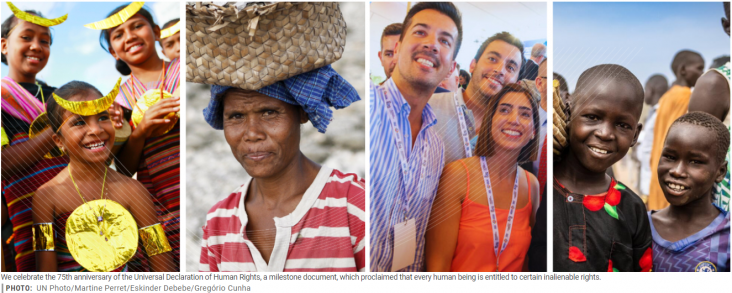
10 December 2023 marks the 75th anniversary of one of the world's most groundbreaking global pledges: the Universal Declaration of Human Rights (UDHR).
Residents of Australia’s remote regions have lower life expectancies and poorer health outcomes than other Australians. Access to hospital and specialist care frequently requires transport via road or air and time spent away from family and community. The paper explores consumer perspective and identifies areas for improvement.

Human health, in the coming decades (and already in some “front-running” regions), is in peril. Although some authorities warn that over-stating such risks can induce paralysis and despair, under-stating them will not generate the intense action that is required. The impact of climate change on the Earth system is now so significant that the next ice age will likely be delayed by at least 50,000 years [201]. If humans do not rapidly change their collective behavior, then this may be their most enduring legacy. It is hoped that this chapter makes a small contribution to SDG3.
This article ties to SDG3 by examining ambient temperature and inpatient mortality
This content aligns with Goal 3: Good Health by exploring potential nutraceutical interventions for autism and related disorders, which can enhance therapeutic strategies and improve health outcomes for individuals affected by these conditions. By investigating the roles of various dietary and environmental factors, the study aims to provide a more nuanced understanding of autism's complex etiology, potentially leading to more effective management options. Additionally, it supports Goal 10: Reduced Inequalities by emphasizing the need for accessible and diverse treatment approaches, such as nutraceuticals, which can offer individuals and families more options for managing autism, regardless of their socioeconomic status or access to traditional healthcare resources.
Elsevier,
Symptomatic: The Symptom-Based Handbook for Ehlers-Danlos Syndromes and Hypermobility Spectrum Disorders, 2024, Pages 135-144
This content aligns with Goal 3: Good Health by exploring the systemic nature of attention-deficit hyperactivity disorder (ADHD) and its associations with other physical and mental health issues, emphasizing the need for comprehensive treatment approaches that address various underlying factors, including autonomic dysfunction and neuroinflammation. By proposing new targets for treatment, the chapter promotes a more holistic understanding of ADHD that can lead to improved health outcomes for affected individuals. Additionally, it supports Goal 10: Reduced Inequalities by highlighting the importance of recognizing and addressing the complex interplay of conditions that often accompany ADHD, ensuring that all individuals receive equitable and effective care tailored to their unique health needs, regardless of their background or circumstances.
This content aligns with Goal 3: Good Health and Wellbeing by explaining the different contributions to the mitochondrial toxic profile produced either by the virus or by the antiretroviral treatment.

Approximately 15 per cent of the world's population live with some form of disability and 80 per cent live in developing countries. This Special collection aims to highlight this important issue and hopefully provide measures towards an inclusive and supported environment for all irrespective of disability. All book chapters and journal articles are free to download and share.
This chapter advances Goals 3 and 5 by discussing how pediatric health-care providers and systems can create healing-centered spaces to support IPV survivors and their children.
This chapter advances Goals 3 and 5 by discussing health care providers' opportunity for ARA prevention using a universal education approach that provides information on healthy and unhealthy relationship behaviors and ARA resources.
